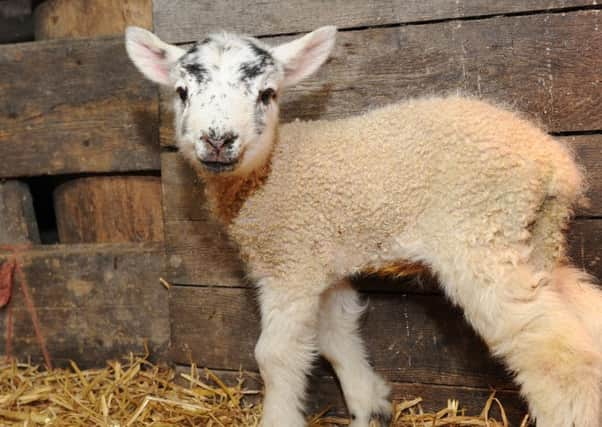Sarah-Jane Laing: Country voices need to be heard in election


If politics is not your favourite pastime then the spring period is unlikely to be the most enjoyable time to be tuning into TV and radio and reading the first few pages of your newspaper.
A cacophony of voices is attempting to influence voters and politicians ahead of the Scottish parliamentary elections, with the subsequent EU referendum sure to dominate once Holyrood has been elected.
Advertisement
Hide AdAdvertisement
Hide AdAmong the campaign groups looking to make their views known are organisations representing businesses, often expressing how decisions at the ballot box will affect employment in years to come.
Yet whilst it is natural that the stances of the country’s largest employers are more likely to dominate the news pages come election time, the needs of small businesses – and especially those in rural areas – should not get lost in the noise of the political hullabaloo.
Rural news over the last year has been dominated by land reform and the government’s failure to implement the new system of payments for farmers. Although these are unquestionably important issues, the headlines do not reflect many of the everyday concerns of our rural communities and businesses.
At a recent rural hustings jointly organised by Scottish Land & Estates and NFU Scotland and supported by a range of rural groups, it was infrastructure, skills and housing that was at the fore of the debate, along with opportunities for young people to enter farming and the wider land based sector.
The forthcoming election is undoubtedly an important event for those of us who want to ensure our rural economies can thrive in future years. And at the heart of this goal is opportunity – creating opportunities for growth and also for wider societal benefits.
We regularly hear the term ‘brain-drain’ in the media, where the best young talent is forced to move in order to access employment unavailable at home. Sometimes characterised as young graduates leaving Scotland to move to cities such as London, a similar scenario occurs where young people leave our rural areas to move to urban locations such as Edinburgh and Glasgow because there are insufficient opportunities to build a career on their home patch.
The importance of stemming this flow of young people from our rural areas – and the help required from decision-makers in order to do that – cannot be underestimated.
Many rural businesses are small-scale enterprises. These small businesses are vital to the sustainability of rural communities. A business in a large city may employ 100 people but if it cannot survive, it is likely that the employees will be able to find another opportunity locally and the wider area will remain largely unaffected by its closure. This is not the case in rural areas.
Advertisement
Hide AdAdvertisement
Hide AdOur rural businesses can often be low volume - but large impact. They may only employ a handful of people but they will help drive economic activity in the area and often support other local businesses. For example, an estate which diversifies into tourism will in turn support local food suppliers, tradesmen and garages.
Such businesses, and the communities they support, are not looking to the impending elections as a chance to demand handouts or special treatment. But what is needed is a commitment to introduce enhanced connectivity, whether that be electronically through rural broadband or physically through public transport, to allow existing and new rural enterprises to reach their full potential. More needs to be done to ensure that infrastructure is fit for the 21st century in our countryside, not only our urban locations.
Opportunities are being created for young people across rural areas, but this often takes place with one hand tied behind the back of businesses who want to do more. Scottish Land & estates has been working with Rural Skills Scotland, Lantra and others to increase routes into further education and skills training for agricultural and land-based industries, including country sports, but widening access to such training needs to be more of a priority for government. It was clear from the hustings that there is a desire to retain young people in rural regions but this has to be converted into a tangible package of actions from the next Scottish Government.
The availability of housing is a key part of that package, the Scottish Government has recently announced a Rural Housing Fund which will provide £25m over the next three years in order to increase the supply of affordable housing of all tenures in rural Scotland. Such support has to be welcomed but with the nation’s ‘housing crisis’ even more acute in rural areas, the potential of private and community landowners to play a greater role in housing provision should be realised.
• Sarah-Jane Laing is Director of Policy & Parliamentary Affairs at Scottish Land & Estates